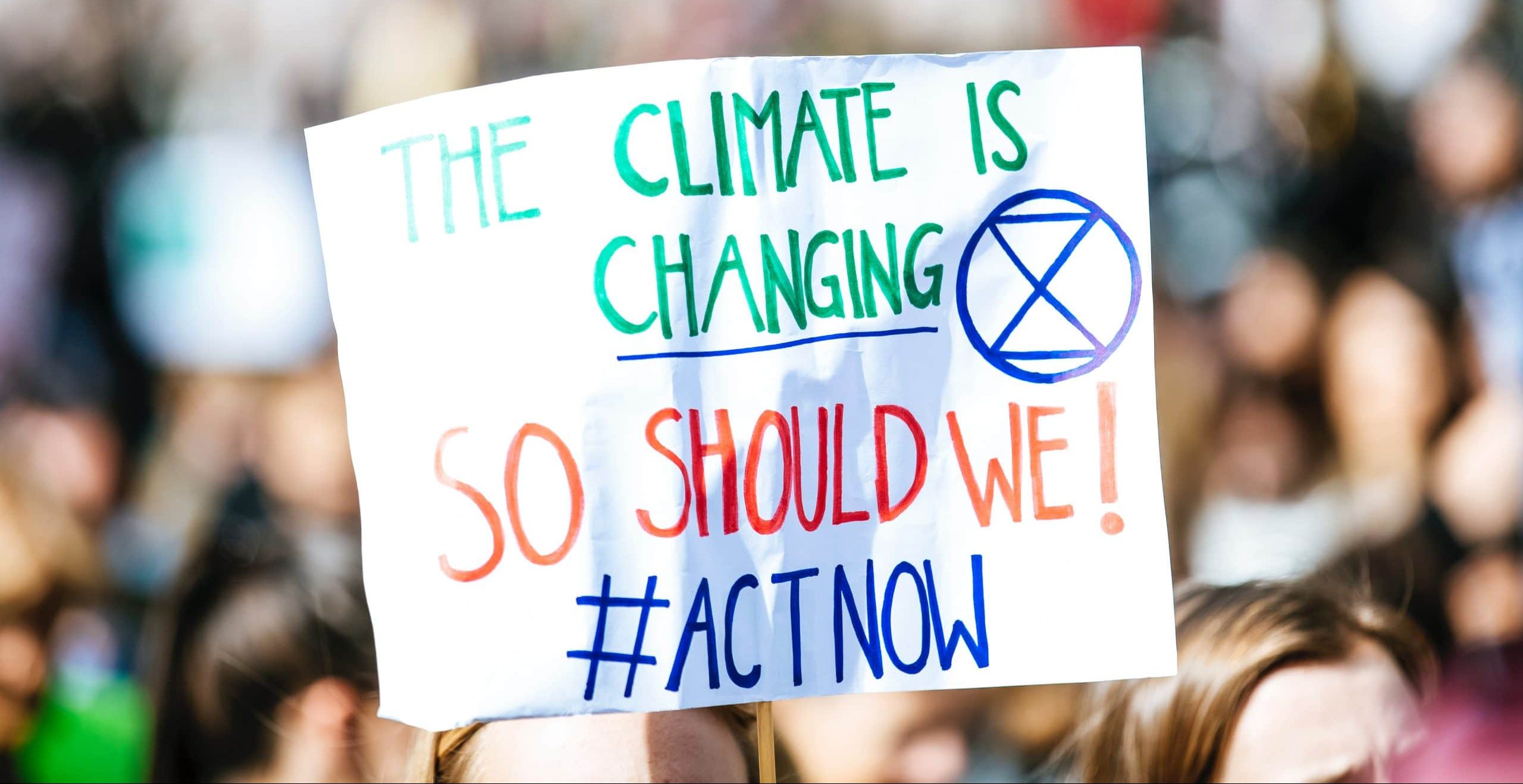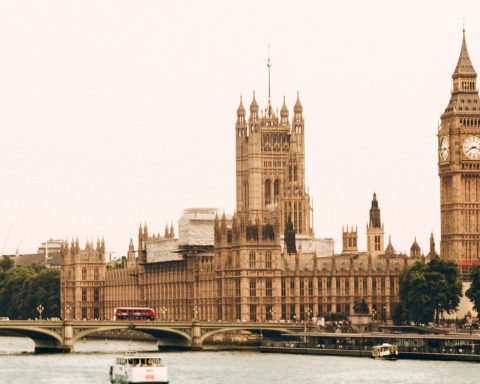 Nada Khan is an Exeter-based NIHR Academic Clinical Fellow in general practice and GPST4/registrar, and an Associate Editor at the BJGP. She is on Twitter: @nadafkhan
Nada Khan is an Exeter-based NIHR Academic Clinical Fellow in general practice and GPST4/registrar, and an Associate Editor at the BJGP. She is on Twitter: @nadafkhan
Our house is on fire. I am here to say, our house is on fire.
Greta Thunberg, World Economic Forum 2019
Our house is still on fire. Your inaction is fuelling the flames by the hour.
Greta Thunberg, World Economic Forum 2020
It’s our ‘final warning’; the world is failing to limit the impacts of climate change. The third report from the Intergovernmental Panel on Climate Change (IPCC) paints a bleak picture on the state of the climate emergency; it’s a now or never situation. The IPCC states that it is ‘likely’ that global heating will increase above 1.5° Celsius compared to pre-industrial levels; and this is the point at which the effects of climate changes become irreversible.1 However, there is some cause for hope. The same report suggests that both drastic efforts to reduce greenhouse gas emission and technology advances to remove carbon dioxide from the atmosphere could make any temperatures increases temporary. What can we do in primary care?
Unless anyone has any bright ideas on how GPs can start capturing carbon dioxide, the focus for primary care must be on reducing greenhouse gas emissions.
I’m not going to try and reinvent the wheel here; BJGP Life and the BJGP include articles from GPs and primary care academics who have written extensively about the climate emergency and how primary care can act to maximize sustainability. But if you, like me, are reading the IPCC report and feeling increasingly worried about the climate emergency and what we can do to make sustainable changes within a time sensitive crisis, I’ve tried to bring together recent articles on this topic for guidance. Unless anyone has any bright ideas on how GPs can start capturing carbon dioxide, the focus for primary care must be on reducing greenhouse gas emissions. Terry Kemple, the RCGP Representative for Sustainability, Climate and Green Issues, wrote alongside colleagues in the BJGP about the climate emergency and tried to provide practical answers to the question of ‘what should we do?’.2 In their article, the team reference the RCGPs Green Impact for Health toolkit, which lists over 100 actions that practices can take to make changes to their carbon footprint and save money.3 Kemple et al acknowledge that there are barriers to implementing change, such as the extra work of setting out a green policy, being a lone enthusiast in a practice but finding it difficult to achieve goals, and dealing with the realities of actually achieving a lower carbon footprint. The actions to overcome these barriers need time and resource, but the ‘first imperative is for everyone who cares to turn up and start’ doing something.
Identifying waste and reducing carbon emissions is a complex task, but there are tools to help practices navigate this area. Matt Sawyer, a Yorkshire GP who runs a sustainability consultancy, has developed a ‘Carbon Calculator’ to help GPs and practice to measure their carbon footprint and what they can do to reduce it.4 The GP Carbon Calculator is available at https://www.gpcarbon.org/#/. Part of acknowledging what is happening is talking about it. At a patient level, Margaret Jackson and Lesley Morrison, who were observers at COP26, encourage us to talk about the climate emergency openly with patients, for example, when discussing inhaler prescribing.5 What are the potential impacts, however, on discussing climate change in the context of healthcare usage upon the therapeutic relationship? Not everyone is ready to talk about the climate emergency, and whilst some patients might be motivated to make changes to help the environment, other patients may sense a conflict of interest (for example, wondering if their GP worries more about the environment than about them) or feel guilty about their healthcare and medication use.6 So tread forward with these discussion, but perhaps tread carefully with patients you understand well.
The IPCC report implores us to act now. And if you’re looking to act, you’re not alone.
The IPCC report implores us to act now. And if you’re looking to act, you’re not alone. The Greener Practice network (https://www.greenerpractice.co.uk/) supports connections between clinicians to share information and guidance through local groups, as well supporting a range of WhatsApp groups for discussions on different themes such as education, greener clinical care and organisation level changes. And because this is an evolving topic, BJGP Life has a regular column called Planetary Primary Care which aims to ‘bring essential updates for general practice around the climate emergency and sustainable healthcare’; keep an eye out for new posts. An impending climate crisis needs us to be well informed, well connected and ready for action. Our house is on fire, and the flames are getting closer to burning it all down.
References
- Change IPoC. Climate Change 2022: Mitigation of Climate Change, 2022. https://www.ipcc.ch/report/ar6/wg3/downloads/report/IPCC_AR6_WGIII_FullReport.pdf
- Kemple TSJNS, G.; Wilson, A.; Wynter Bee, J. Primary care and the climate and ecological emergency. British Journal of General Practice 2021;71(711)
- Green Impact for Health 2022
- Sawyer M. GP Carbon Calculator: making it easier to support the NHS’ net zero ambitions 2022 [Available from: https://bjgplife.com/gp-carbon-calculator-making-it-easier-to-support-the-nhs-net-zero-ambitions/.
- Jackson MM, L. GPs must talk about climate breakdown: BJGP Life; 2022 [Available from: https://bjgplife.com/gps-must-talk-about-climate-breakdown/.
- Harvey GT, M., Cussans, A.; Twohig, H.; Wilson, A. Talking to patients about the climate emergency: The BMJ Opinion, 2021.
Featured image by Markus Spiske on Unsplash






